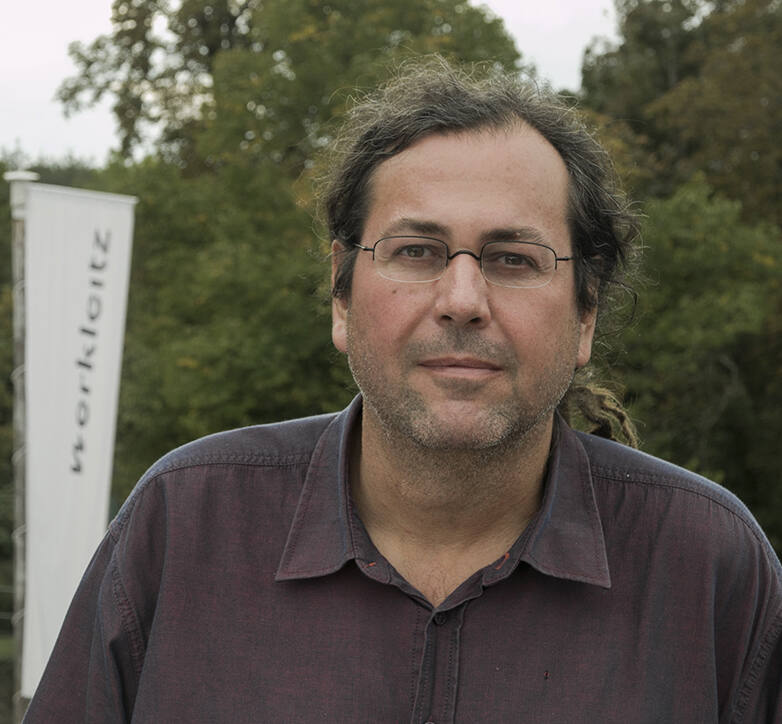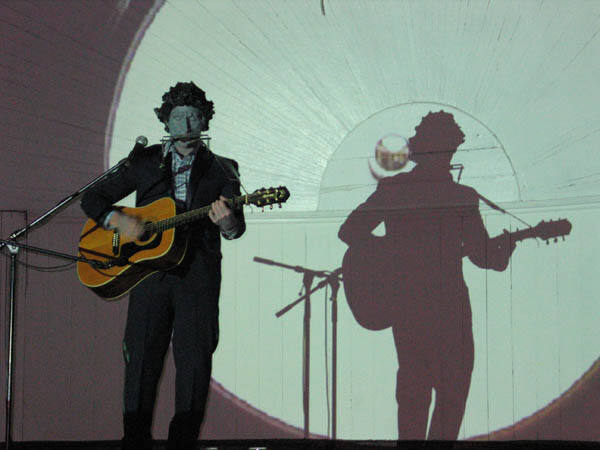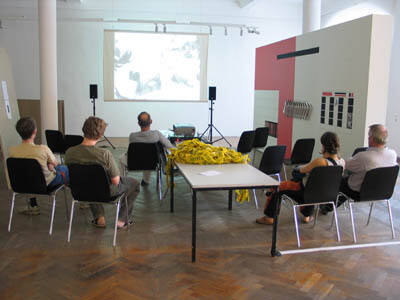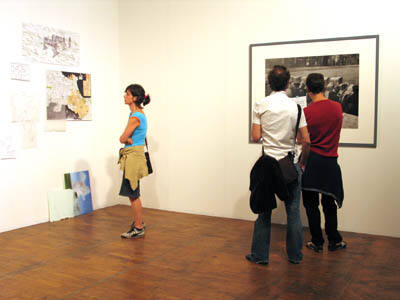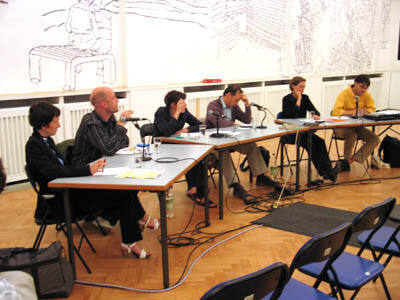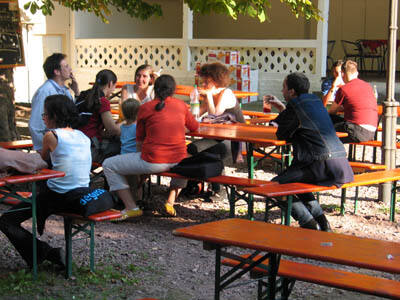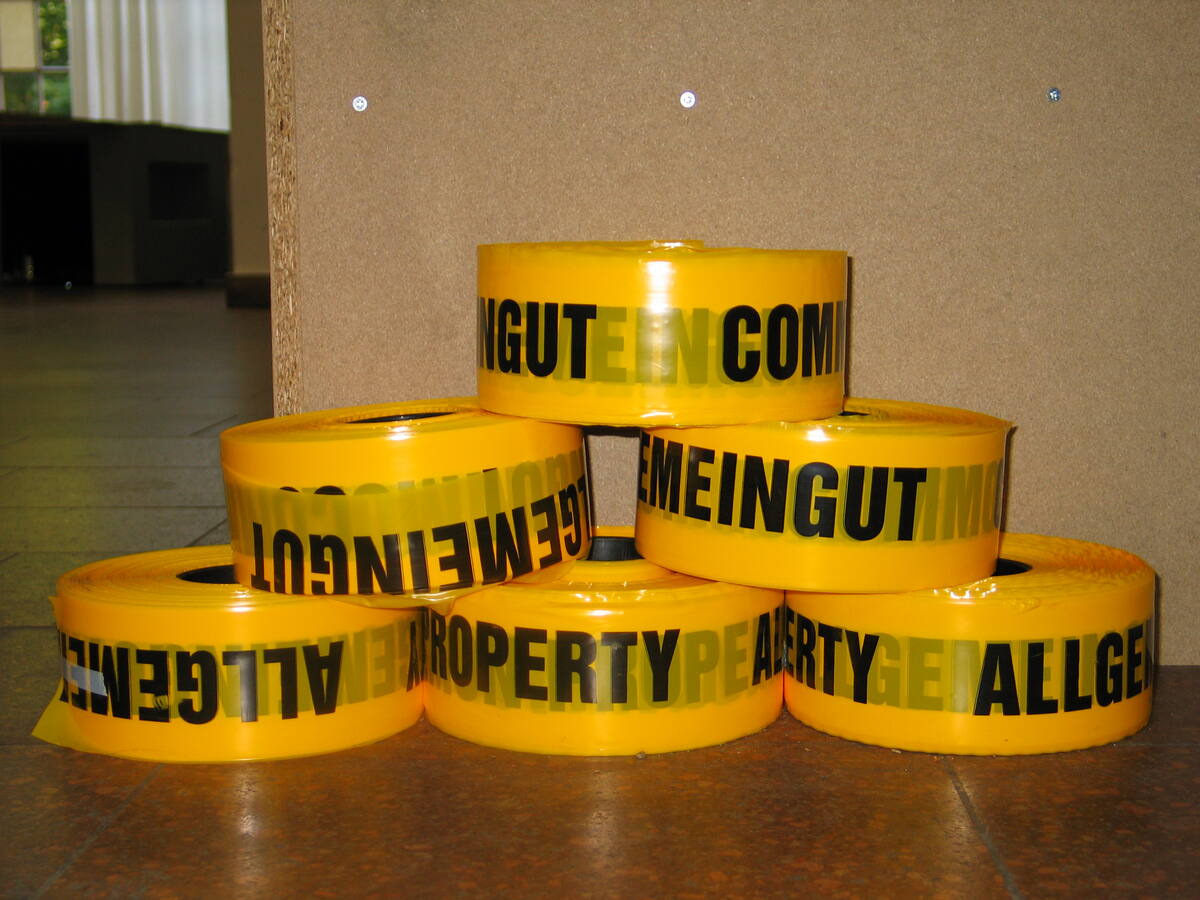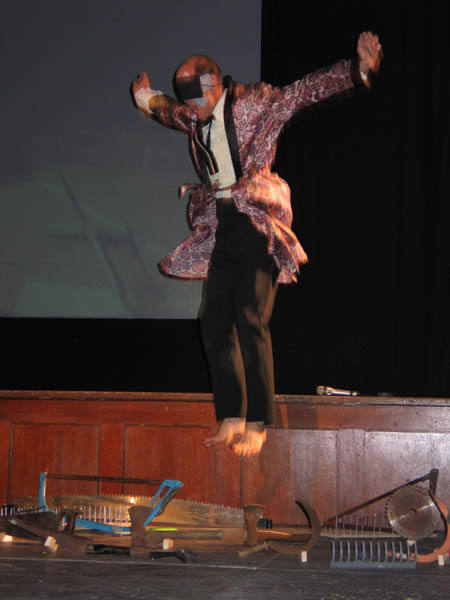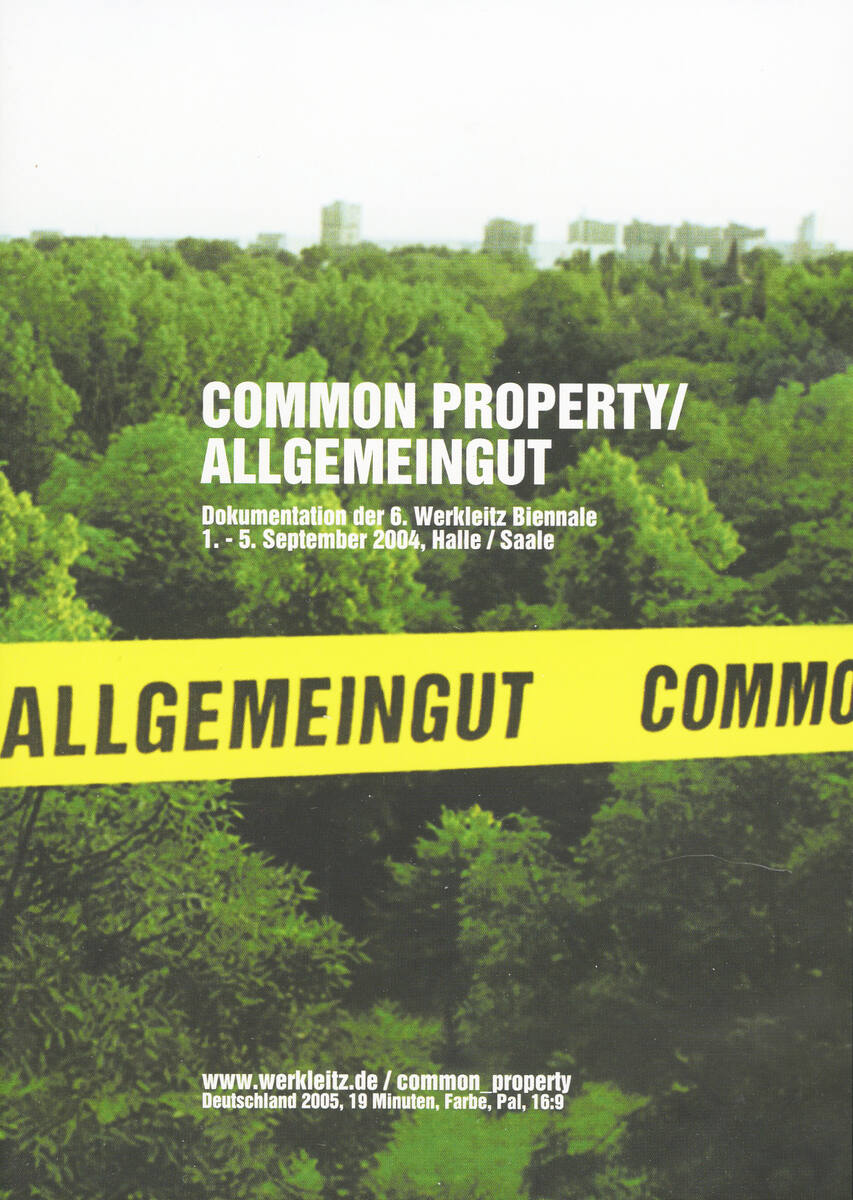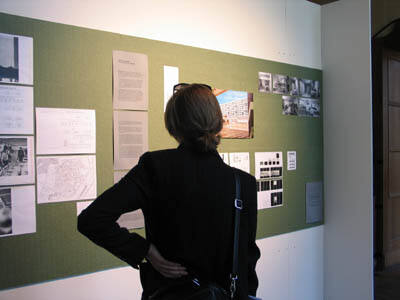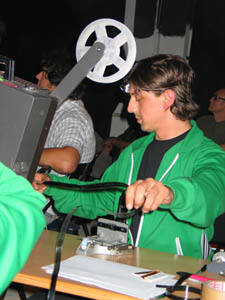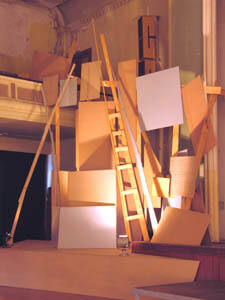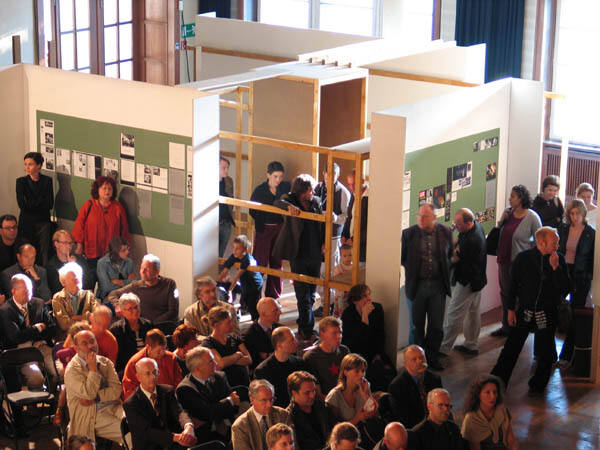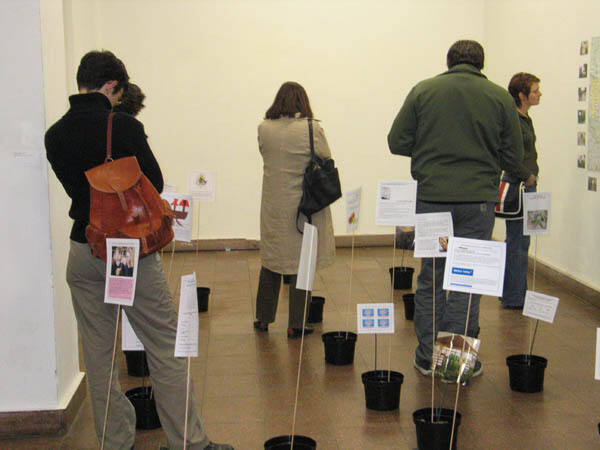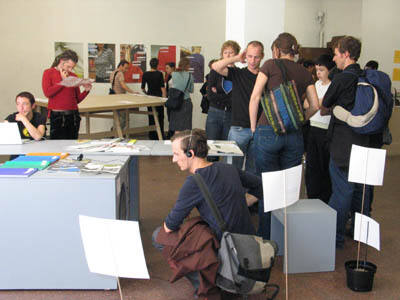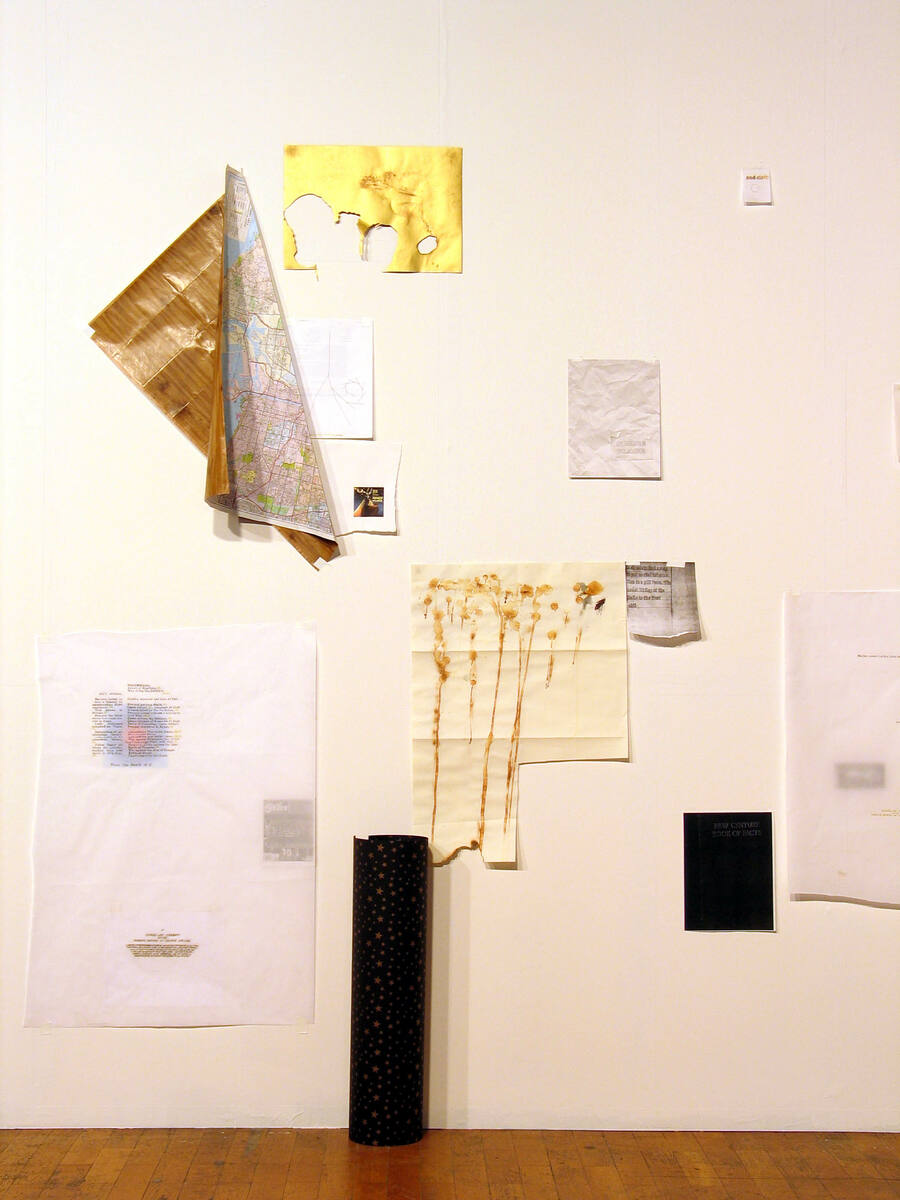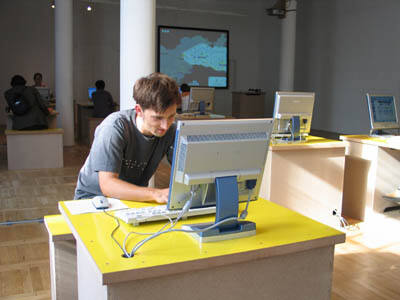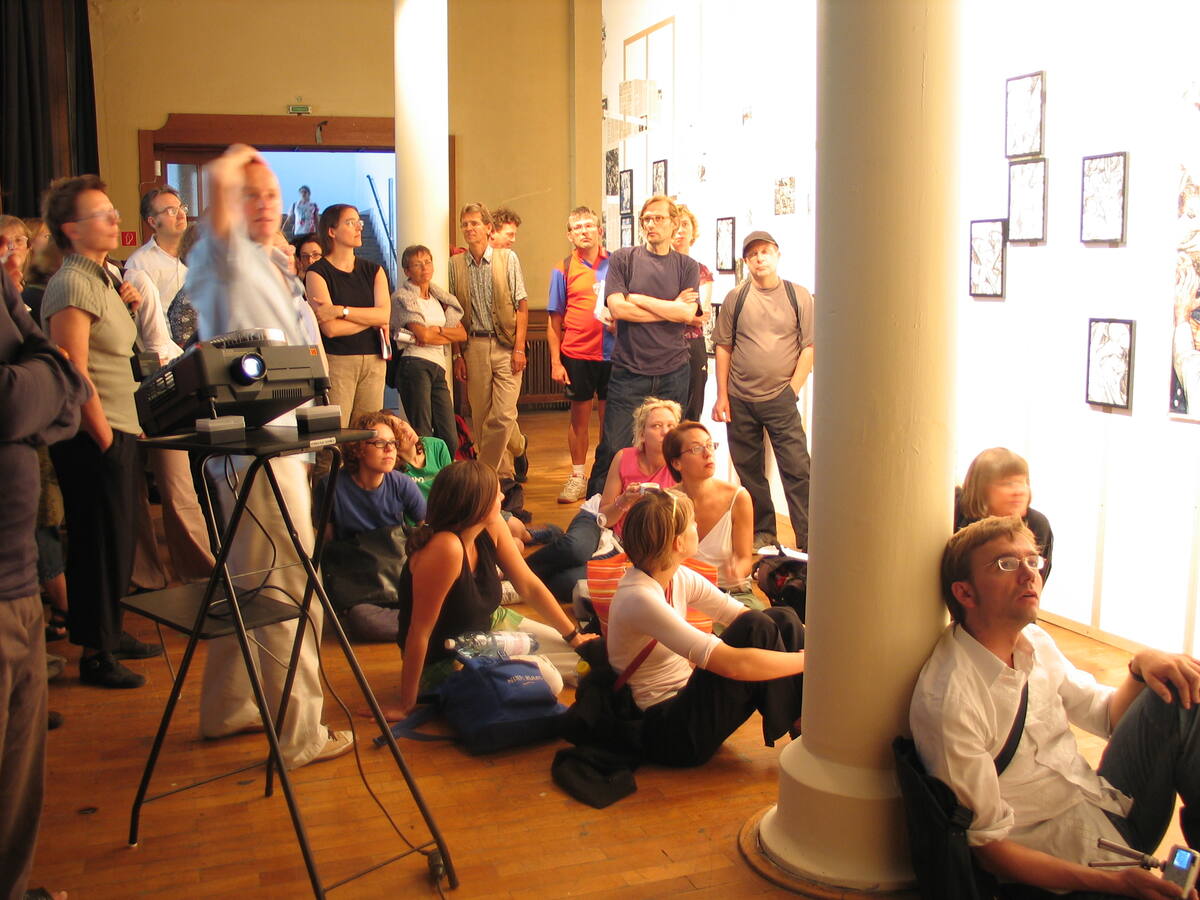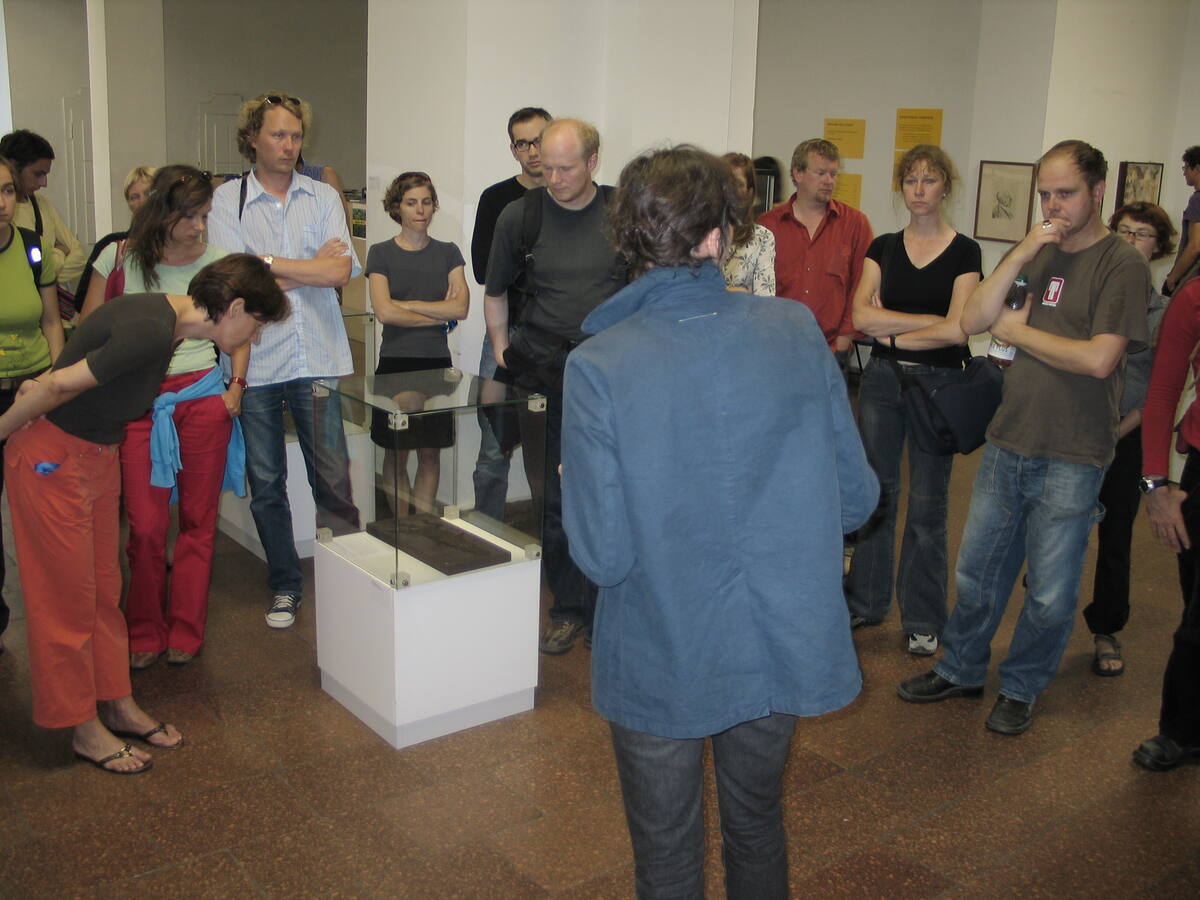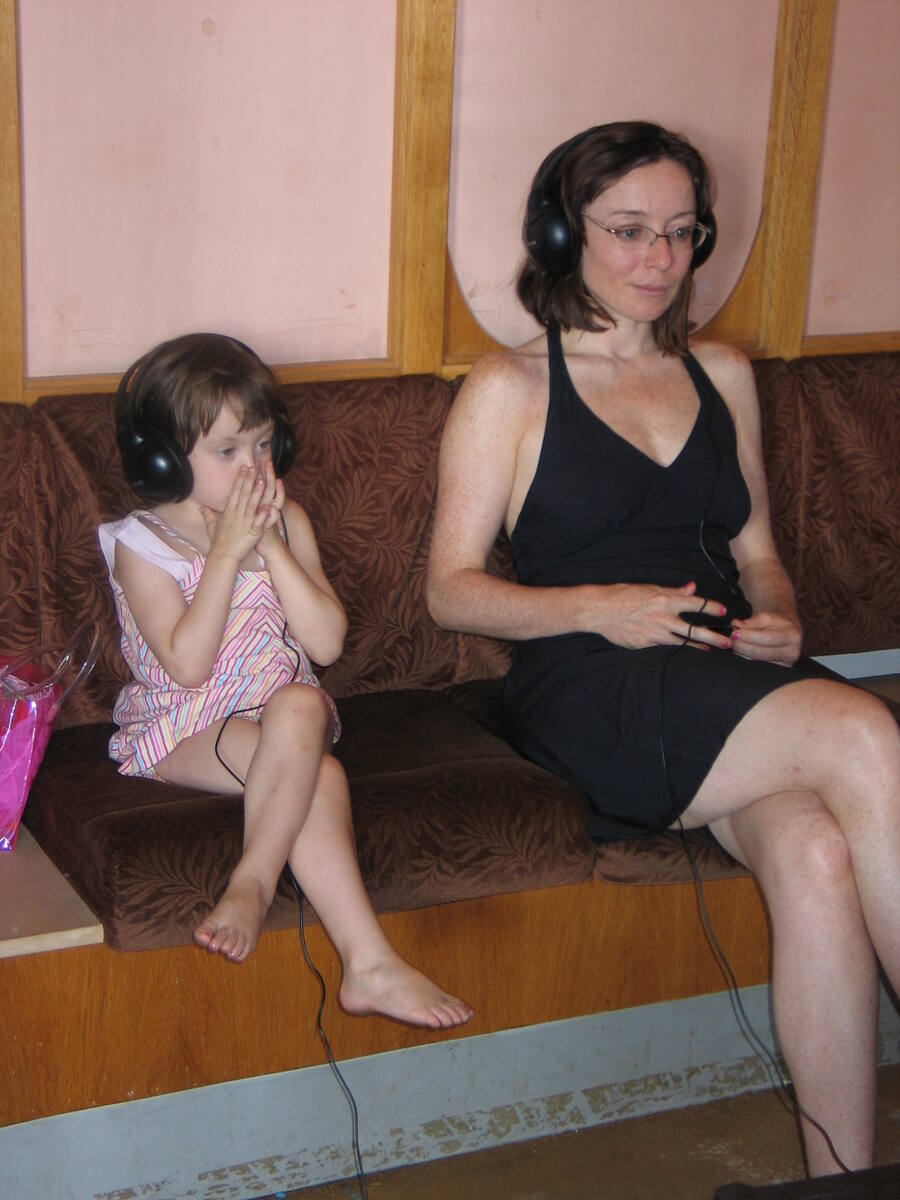6. Werkleitz Biennale
Common Property/Allgemeingut
Personen
Media
Concept
The starting-point of the curatorial concept for the 6th Werkleitz Biennale are conflicts and debates that have resulted from the tightening and the stepped-up enforcement of patent and/or copyright regulations in the fields of art, film, music, software, and biotechnology.
These are perceived by the artists and cultural producers not only from the position of an observer or of someone who is "affected", the debates will instead by actively led, commented on and partially pushed forward. What is decisive for the concept of the Biennial is the critique of those popular and influential arguments that accompany the crisis of the so-called "knowledge-based society" and its Eurocentrism, and that play off the author against a collective cultural interest/"knowledge".
Copyright and patent laws establish privileges and fix territorial claims that in the production and implementation of specific – and to a large extent profitable – "truths" differentiate between legitimate and illegitimate forms of knowledge and the exclusion criteria of which were and are expressed in recording techniques and cartographical and cataloguing procedures, among others.
In the current debate on intellectual property, the privatisation of knowledge is facilitated by the implementation of new laws. The expansion of rights usually takes place following court hearings and by creating precedents. Both copyright and the privileges linked to authorship, for instance, go beyond the sphere of immaterial production and "knowledge", yet examples are made here that serve to legitimise a form of authorship that is at the same time becoming increasingly difficult to grasp unambiguously, (particularly for technological reasons).
Based on the current tightening of ownership structures as well as on the historical and contemporary debates surrounding the concepts of private property and collective property, the Werkleitz Biennale, along the lines of the theme 'common property', will raise questions pertaining to the common points of reference that open networks, artistic and activist strategies, as well as collective authorship possess. Together with the artists and cultural producers, the curatorial team has developed a number of focuses that include specific aspects of knowledge production and collective practice, interventionist strategies in public, private, medial, and digital space, as well as works investigating biotechnology.
The set of questions that the exhibition, the film and video programmes, and the numerous live events of the Werkleitz Biennale centrally pose are: What belongs to everyone? What aspects of this notion of common property are worth retaining or implementing? Which concepts and ideas have become invalid? And how, finally, can this common property be protected?
Knowledge production and distribution
With the Werkleitz Biennale's new venue, the Volkspark in Halle, questions are raised in situ pertaining to the historical and current assessment of authorship and property rights. Conflicts in regard to appropriations and revaluations permeate the entire documented history of the Volkspark. The models of mediation and production of knowledge and the accompanying different notions of community, communal well-being, and (political) culture and society, which have manifested themselves in the foundation and in the changing ownership structures and uses of the Volkspark, will be critically reviewed.
In face of the increasing decentralisation and the intensified organisation of knowledge in 'networks', the Volkspark stands for a model of centralised knowledge mediation and historical knowledge production that has in the meantime become obsolete.
As installed interventions in the Volkspark, so-called inserts referring to historical artistic designs of collective and proletarian culture will, among other things, reassess the meaning and future function of the venue.
Preceding the Werkleitz Biennale, the Halle School of Common Property will offer a forum for the active examination of the possibilities of non-institutional and alternative production of culture and knowledge.
Apart from the appropriation of knowledge, the storage, deletion, systematisation, and retelling of knowledge raise questions that relate to the power of definition and the contradictions of collective memory, to archives, common knowledge, and personal accounts. What, then, are the limits and conditions of oral, written, and visual traditions, of copy techniques, of reproduction and compilation, up to the deconstruction of the truth and history (of knowledge-based culture)?
Collective culture production
Network of Commons intends to bring together current strategies of the worldwide networking of activists and groups working on the free production, the unrestricted accessibility, the exchange, the copying and the utilisation of knowledge and information in the digital sphere. Within the increasing juridification and thus regulation of various fields of knowledge, these strategies mark highly relevant approaches directed against the aim of monopolising cultural and natural resources and exploiting them on this basis. Network of Commons will expose the references made in these networks.
The exhibition additionally comprises positions that within the frame of their "collective" practice make an effective appearance in public, where they enable joint production, replication and the continuation of these practices. The films and videos of the Biennial examine the basis, the viability, and the limits of historical and present-day collective authorship.
Interventionist strategies
The focus here is on the potential of individual and collective artistic and activist practices that under the conditions of globalisation analyse existing systems of order and seek to define new immaterial and material spaces. Objects of debate will be interventions in increasingly commercialised and privatised urban and medial spaces, interventions that take up, copy, and newly situate the structures and signs of these spaces. This includes sticker and graffiti campaigns, temporary interventions and collective usages of spaces not yet defined in terms of property rights, as well as new forms of negotiating and distributing information.
Realism
What played a pivotal role time and again in drawing the border between collective and bourgeois-elitist culture, albeit under different names, was the debate on realism. Realism, as an image that manifested itself in everyone, disregarding differences in terms of education and class, says a lot about the collective habits of visual perception in a society. Realistic elements were and are used whenever the visual content of a general communication is to address its topic not in a formal but above all in a content-related way. Perhaps the break with the realistic image is characterised mainly by the assertion of handwriting, authorship and individual, and thus by the interplay between autonomy and heteronomy that marks the beginning of modernism.
One part of the exhibition will display a series of works that for the most various reasons utilise the realistic drawing, thus counting on the assertion of a generally readable picture message.
Biotechnology
While in the cultural field problems relating to copyright and intellectual property are mainly discussed along the lines of the author, in a larger social debate we see corporate structures pressing for an extension of copyrights and patent rights. In the process, patentable codes are developed via the describable features of biological processes that, comparable with the source code of software, centralise the access to knowledge and the distribution of information in companies exploiting copyrights and patents. Chemical and pharmaceutical corporations are investing in the research of transgenetic and genetically manipulated products and make use of patent laws to secure access to and the commercial exploitation of the species-richness of plants, which is especially a resource in the global South. In this context, the Werkleitz Biennale documents current interventions directed against the privatisation of the means of subsistence and gives insights into the global strategies of issuing patents for natural substances and collective, e.g., indigenous knowledge.
31.08.04
05.09.04
05.09.04
05.09.04
04.09.04
